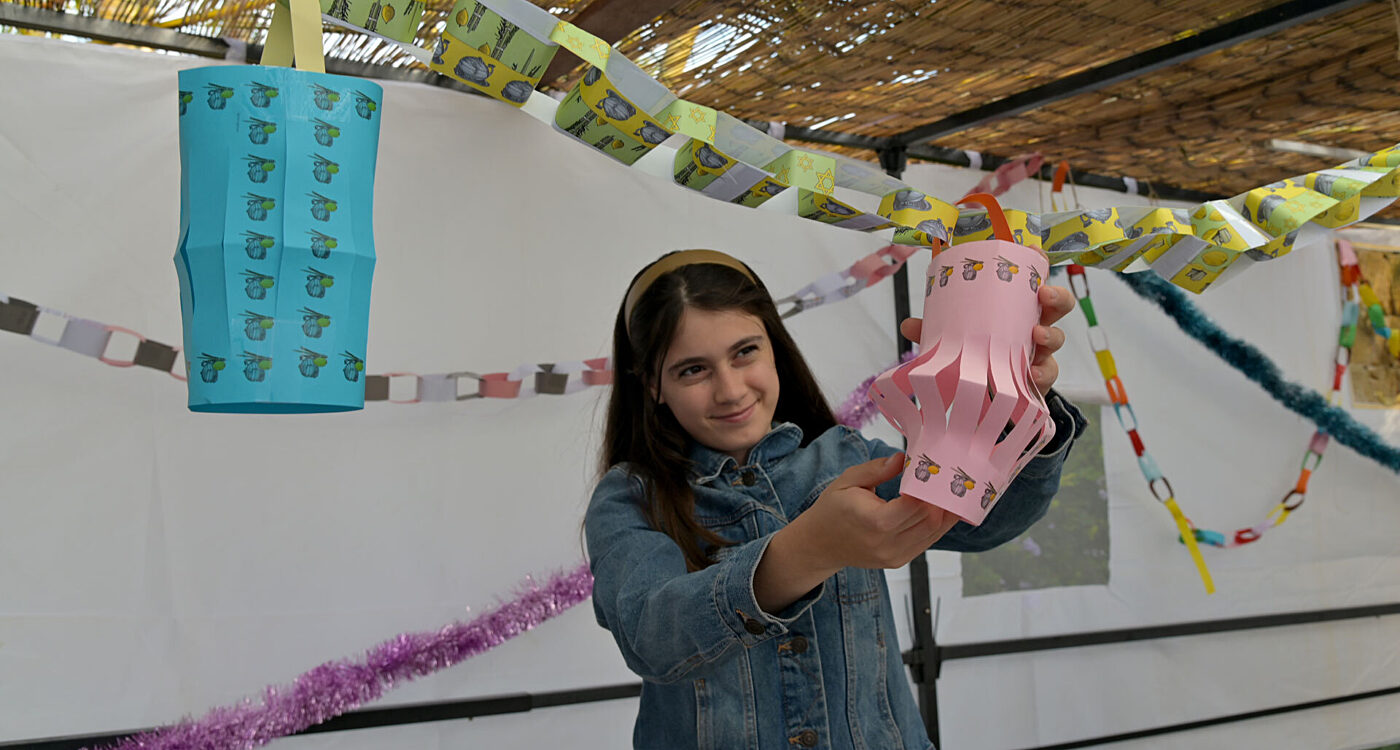By Rabbi Michael Bram
We made it! We’ve survived Rosh HaShanna and Yom Kippur and now the holidays are over.
Wait! There’s another: Sukkot. Sukkot often gets lost in the holiday shuffle—Rosh HaShanna and Yom Kippur are long and heavy days, so once Sukkot comes around, many people are “holiday-ed out.”
On its face, Sukkot doesn’t seem related to the two holidays that immediately precede it. They are even often grouped in separate categories: Rosh HaShanna and Yom Kippur are grouped together as “days of awe,” while Sukkot is grouped with Pesach and Shavuot as the “pilgrimage festivals.” But the proximity of Sukkot to Rosh HaShanna and Yom Kippur can’t be a coincidence, because Judaism doesn’t believe in coincidence. There must be a connection between these holidays.
So, what do Yom Kippur and Sukkot have in common? Joy. Sukkot is referred to as “zman simchateinu,” the season of our joy. It’s a holiday focused almost exclusively on joy and happiness. This may come as a surprise, but the Mishnah refers to Yom Kippur as one of the two most joyous days of the Jewish year (the other is a subject for a different day). I suspect few people reading this relate to Yom Kippur, a fast day focused on sin and long synagogue services, as a joyous day. What joy is there in Yom Kippur?
From a certain point of view, the joy of Yom Kippur and Sukkot are the same: it’s the joy of knowing we’ve been forgiven for our past misdeeds and can move forward with our year without the burden of our failings. The Mishnah relates that at the end of the Yom Kippur service in the Temple, the assembled congregation would escort the High Priest back to his home amid song, dance, and celebration. The High Priest had successfully completed the day’s tasks, and the people knew they had been forgiven.
There are few feelings better than knowing that we’ve been forgiven for our wrongdoings. When we hear the “thump” of the machzor closing after neilah at the end of Yom Kippur, it concludes a 40-day period of self-refection and self-improvement. We do the work required to make amends between other people and with God. We confess our transgressions and make plans to be better in the coming year. We refrain from caring for our physical needs for a day in order to connect to our spiritual Source. When we do all that, there’s a palpable relief that we now have a clean slate ahead of us for the coming year. There’s no greater joy than that, and fortunately, God gives us an outlet for our joy.
Just five days after Yom Kippur comes along Sukkot, which is an opportunity to experience and express our joy in God’s forgiveness and compassion. For nine days of Sukkot we revel in the joy we experience at the end of Yom Kippur, but there’s a catch: Sukkot is a holiday with lots of rules and details. The rules of the Sukkah are complicated, the lulav & etrog can become invalid in a myriad of ways. How does this help us experience joy?
On Yom Kippur we make all kinds of promises to God: promises that we’ll be more devoted to Him, more devoted to each other, and more devoted to the welfare of the world around us. God accepts our promises, and then gives us a chance to ‘put our money where our mouth is.’ He gives us an opportunity to express our promises to be better by giving us some detail oriented mitzvot. Do we take the time to build a kosher sukkah and invite our family and friends to celebrate in it? Do we acquire a lulav & etrog set and rejoice in the synagogue with it? Joy feeds off of joy, and one mitzvah brings more mitzvot. We have opportunity to start our year off on the right foot by translating the joy we receive from God on Yom Kippur into the joy we give back to Him and each other on Sukkot.
Wishing everyone a Chag Sameach!
JF&CS’ Jewish Chaplaincy provides compassionate spiritual care and connection for Atlanta’s Jewish community. Led by Community Chaplain Rabbi Michael D. Bram, DMin, BCC, Lt Col, USAF (Ret.), the program offers visits in hospitals, hospices, care facilities, and more, while partnering with local rabbis and supporting individuals and families with warmth and dignity.
